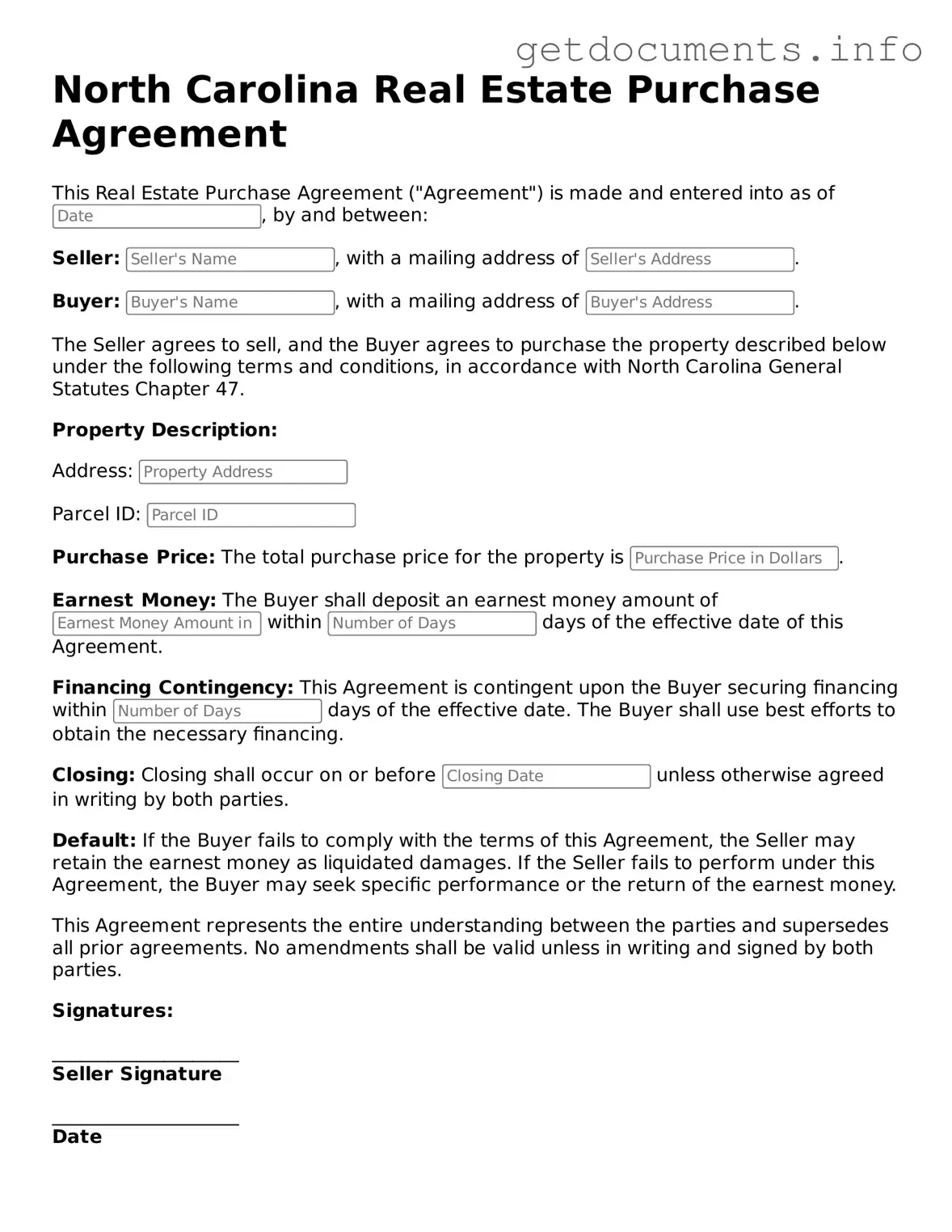Free Real Estate Purchase Agreement Template for North Carolina
The North Carolina Real Estate Purchase Agreement form serves as a crucial document that outlines the terms and conditions between a buyer and seller in a real estate transaction. This legally binding agreement ensures that both parties understand their rights and obligations throughout the buying process. To get started on your real estate journey, fill out the form by clicking the button below.
Access Real Estate Purchase Agreement Editor

Free Real Estate Purchase Agreement Template for North Carolina
Access Real Estate Purchase Agreement Editor
Got places to be? Complete the form fast
Fill out Real Estate Purchase Agreement online and avoid printing or scanning.
Access Real Estate Purchase Agreement Editor
or
⇩ PDF File
